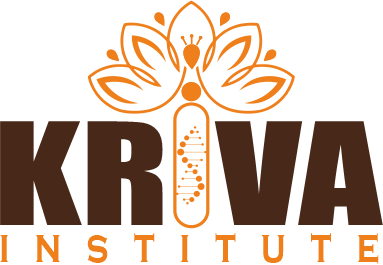Best Fellowship/Diploma Options After MBBS
Introduction
For medical graduates, the journey doesn’t end with an MBBS degree. Further specialization through fellowships or diploma programs can significantly enhance career prospects and expertise. This guide by Kriva Institute in Ahmedabad provides an in-depth look at the best fellowship/diploma options after MBBS, helping you make an informed decision about your professional advancement.
Understanding Fellowships and Diplomas
Fellowships
They are typically research-oriented programs that provide in-depth training in a specific area of medicine. They often involve clinical practice and academic research, preparing doctors for advanced roles in healthcare and academia.
Diplomas
on the other hand, are shorter, more practical programs that focus on enhancing clinical skills in a particular specialty. They are ideal for those who want to gain specialized knowledge without committing to a lengthy training period. Exploring the best fellowship/diploma options after MBBS can lead to significant career growth.
Top Fellowship Options After MBBS
Fellowship in Cardiology Overview
Cardiology fellowships offer specialized, advanced training for medical professionals focusing on diagnosing and treating heart conditions. These fellowships provide an in-depth exploration of cardiovascular diseases, equipping fellows with the expertise to manage complex cardiac issues effectively. Trainees benefit from extensive hands-on experience in various aspects of cardiac care, including advanced diagnostic techniques like echocardiography and cardiac MRI, as well as interventional procedures such as coronary angioplasty and stent placement.
Job Prospects: Cardiologists are in high demand globally, with opportunities in hospitals, research institutions, and private practice. Salaries vary but are generally high due to the specialized nature of the field. This makes cardiology one of the best fellowship/diploma options after MBBS.
Fellowship in Gastroenterology Overview
This fellowship is dedicated to advancing knowledge and skills in the field of gastroenterology, with a specific focus on the digestive system and related disorders. Fellows receive specialized training in diagnosing and managing a wide range of gastrointestinal conditions, including chronic liver diseases, inflammatory bowel diseases, and gastrointestinal cancers. The program includes extensive hands-on experience in performing endoscopic procedures, such as colonoscopy and upper endoscopy, which are crucial for both diagnosis and treatment of digestive disorders.
Job Prospects: Gastroenterologists work in hospitals, clinics, and research centers. The field offers lucrative career opportunities with competitive salaries, marking it as one of the best fellowship/diploma options after MBBS.
Fellowship in Neurology Overview
A fellowship in neurology offers specialized training for doctors aiming to enhance their expertise in diagnosing and treating a wide range of neurological disorders. This advanced program provides comprehensive education in the management of conditions such as epilepsy, stroke, and neurodegenerative diseases like Parkinson’s and Alzheimer’s. Fellows receive in-depth instruction in the latest diagnostic techniques, including advanced neuroimaging and electrophysiological studies, as well as hands-on experience in performing complex neurological evaluations and interventions.
Job Prospects: Neurologists are essential in hospitals, research, and academic settings, with high earning potential due to the specialized skills required. Neurology remains a top choice among the best fellowship/diploma options after MBBS.
Top Diploma Options After MBBS

Diploma in Child Health (DCH)
Overview
The Diploma in Child Health (DCH) focuses on pediatric care, providing doctors with specialized training to effectively manage and treat a range of childhood illnesses. This diploma program equips healthcare professionals with essential skills and knowledge in various aspects of pediatric medicine, including growth and development, preventive care, and the diagnosis and treatment of common and complex childhood conditions.
Job Prospects: Pediatricians are in demand in hospitals, clinics, and child care centers. This diploma enhances career prospects in pediatric healthcare, making it one of the best fellowship/diploma options after MBBS.
Diploma in Clinical Dermatology Overview
The Diploma in Clinical Dermatology offers specialized training in diagnosing and treating a wide range of skin disorders, with a focus on both medical and cosmetic aspects of dermatology. This comprehensive program equips healthcare professionals with the skills and knowledge necessary to manage conditions such as acne, eczema, psoriasis, and skin cancers. The curriculum includes in-depth education on dermatopathology, which involves studying skin tissue samples to diagnose diseases accurately.
Job Prospects: Dermatologists work in hospitals, private clinics, and cosmetic centers. The field offers substantial earning potential and career growth, making it a strong candidate among the best fellowship/diploma options after MBBS.
Diploma in Orthopaedics Overview
The Diploma in Orthopaedics provides specialized training in the management and treatment of musculoskeletal conditions. This comprehensive program covers a wide array of topics related to bone and joint health, including the diagnosis and treatment of fractures, joint diseases, and sports injuries. Participants learn about various therapeutic approaches, from conservative management techniques like physical therapy and medication to advanced surgical interventions.
Job Prospects: Orthopaedic specialists are highly sought after in hospitals, sports medicine centers, and private practice. The field is known for its lucrative salaries and stands out as one of the best fellowship/diploma options after MBBS.
How to Choose the Right Program
Choosing the right fellowship or diploma program depends on several factors
Career Goals
Identifying your long-term career goals is crucial for choosing the right educational program, as it helps ensure that the program aligns with your professional aspirations. Begin by clarifying your ultimate objectives, such as becoming a leading expert in a specific medical field, advancing to a leadership role in healthcare, or contributing to groundbreaking research. Once you have a clear vision of your career path, evaluate how the program’s curriculum, training opportunities, and resources support these ambitions.
Specialization Interests
When selecting a medical program, it's essential to consider your interests in various specialties and choose a program that aligns with your passions. Specialization interests should guide your decision, as pursuing a field that genuinely excites you will enhance your motivation, engagement, and overall satisfaction with your career. Reflect on the areas of medicine that intrigue you the most—whether it’s cardiology, neurology, gastroenterology, or another specialty—and seek out programs that offer comprehensive training and expertise in those areas.
Geographic Location
When choosing a medical program, evaluating the geographic location of institutions and their accessibility is crucial for both practical and strategic reasons. Consider how the location aligns with your personal and professional needs, including proximity to your current residence, the cost of living, and potential relocation logistics. Accessibility factors such as transportation options, local amenities, and the overall environment of the area can significantly impact your daily life and study experience.
Accreditation
Research the reputation and accreditation status of the institutions offering the programs. Selecting the best fellowship/diploma options after MBBS involves careful consideration of these factors to ensure the chosen program meets your professional needs and goals.
Application Process and Requirements

The application process for fellowships and diplomas typically includes: Medical Degree: A completed MBBS degree is mandatory.
Experience
When evaluating medical programs, it is important to consider whether they require prior clinical experience. Many advanced programs, such as fellowships or specialized residencies, expect applicants to have a foundational level of clinical experience before admission. This prior experience is crucial as it ensures that candidates have a solid background in patient care, diagnostic skills, and medical procedures, which are essential for success in advanced training.
Tips for a Successful Application
Research Thoroughly To submit a successful application, begin by gathering detailed information about the programs and institutions you are interested in. This includes understanding the curriculum, faculty, facilities, and any special features or strengths of each program. Investigate the institution's reputation, including its ranking, alumni success, and any affiliations with renowned hospitals or research centers. Examine the program's specific requirements, including prerequisites, application deadlines, and required documents.
Prepare Well
Study for entrance exams and prepare for interviews. Highlight Relevant Experience: Emphasize your clinical experience and achievements in your application. Thorough preparation and research are crucial when applying for the best fellowship/diploma options after MBBS.
Contact Us
The scope of diploma options after MBBS is vast and promising. With the right education, skills, and dedication, individuals can achieve significant success and satisfaction in this field. For more information and to explore courses, visit Kriva Institute.
FAQs
Entrance exams are the most common route. Exams like NEET-PG, AIIMS PG, and JIPMER PG are widely accepted.
Some institutions may have their own entrance exams or selection criteria.
Introduction
For medical graduates, the journey doesn’t end with an MBBS degree. Further specialization through fellowships or diploma programs can significantly enhance career prospects and expertise. This guide by Kriva Institute in Ahmedabad provides an in-depth look at the best fellowship/diploma options after MBBS, helping you make an informed decision about your professional advancement.

Understanding Fellowships and Diplomas
Fellowships
They are typically research-oriented programs that provide in-depth training in a specific area of medicine. They often involve clinical practice and academic research, preparing doctors for advanced roles in healthcare and academia.
Diplomas
on the other hand, are shorter, more practical programs that focus on enhancing clinical skills in a particular specialty. They are ideal for those who want to gain specialized knowledge without committing to a lengthy training period. Exploring the best fellowship/diploma options after MBBS can lead to significant career growth.
Top Fellowship Options After MBBS
Fellowship in Cardiology Overview
Cardiology fellowships offer specialized, advanced training for medical professionals focusing on diagnosing and treating heart conditions. These fellowships provide an in-depth exploration of cardiovascular diseases, equipping fellows with the expertise to manage complex cardiac issues effectively. Trainees benefit from extensive hands-on experience in various aspects of cardiac care, including advanced diagnostic techniques like echocardiography and cardiac MRI, as well as interventional procedures such as coronary angioplasty and stent placement.
Job Prospects: Cardiologists are in high demand globally, with opportunities in hospitals, research institutions, and private practice. Salaries vary but are generally high due to the specialized nature of the field. This makes cardiology one of the best fellowship/diploma options after MBBS.
Fellowship in Gastroenterology Overview
This fellowship is dedicated to advancing knowledge and skills in the field of gastroenterology, with a specific focus on the digestive system and related disorders. Fellows receive specialized training in diagnosing and managing a wide range of gastrointestinal conditions, including chronic liver diseases, inflammatory bowel diseases, and gastrointestinal cancers. The program includes extensive hands-on experience in performing endoscopic procedures, such as colonoscopy and upper endoscopy, which are crucial for both diagnosis and treatment of digestive disorders.
Job Prospects: Gastroenterologists work in hospitals, clinics, and research centers. The field offers lucrative career opportunities with competitive salaries, marking it as one of the best fellowship/diploma options after MBBS.
Fellowship in Neurology Overview
A fellowship in neurology offers specialized training for doctors aiming to enhance their expertise in diagnosing and treating a wide range of neurological disorders. This advanced program provides comprehensive education in the management of conditions such as epilepsy, stroke, and neurodegenerative diseases like Parkinson’s and Alzheimer’s. Fellows receive in-depth instruction in the latest diagnostic techniques, including advanced neuroimaging and electrophysiological studies, as well as hands-on experience in performing complex neurological evaluations and interventions.
Job Prospects: Neurologists are essential in hospitals, research, and academic settings, with high earning potential due to the specialized skills required. Neurology remains a top choice among the best fellowship/diploma options after MBBS.
Top Diploma Options After MBBS

Diploma in Child Health (DCH)
Overview
The Diploma in Child Health (DCH) focuses on pediatric care, providing doctors with specialized training to effectively manage and treat a range of childhood illnesses. This diploma program equips healthcare professionals with essential skills and knowledge in various aspects of pediatric medicine, including growth and development, preventive care, and the diagnosis and treatment of common and complex childhood conditions.
Job Prospects: Pediatricians are in demand in hospitals, clinics, and child care centers. This diploma enhances career prospects in pediatric healthcare, making it one of the best fellowship/diploma options after MBBS.
Diploma in Clinical Dermatology Overview
The Diploma in Clinical Dermatology offers specialized training in diagnosing and treating a wide range of skin disorders, with a focus on both medical and cosmetic aspects of dermatology. This comprehensive program equips healthcare professionals with the skills and knowledge necessary to manage conditions such as acne, eczema, psoriasis, and skin cancers. The curriculum includes in-depth education on dermatopathology, which involves studying skin tissue samples to diagnose diseases accurately.
Job Prospects: Dermatologists work in hospitals, private clinics, and cosmetic centers. The field offers substantial earning potential and career growth, making it a strong candidate among the best fellowship/diploma options after MBBS.
Diploma in Orthopaedics Overview
The Diploma in Orthopaedics provides specialized training in the management and treatment of musculoskeletal conditions. This comprehensive program covers a wide array of topics related to bone and joint health, including the diagnosis and treatment of fractures, joint diseases, and sports injuries. Participants learn about various therapeutic approaches, from conservative management techniques like physical therapy and medication to advanced surgical interventions.
Job Prospects: Orthopaedic specialists are highly sought after in hospitals, sports medicine centers, and private practice. The field is known for its lucrative salaries and stands out as one of the best fellowship/diploma options after MBBS.
How to Choose the Right Program
Choosing the right fellowship or diploma program depends on several factors
Career Goals
Identifying your long-term career goals is crucial for choosing the right educational program, as it helps ensure that the program aligns with your professional aspirations. Begin by clarifying your ultimate objectives, such as becoming a leading expert in a specific medical field, advancing to a leadership role in healthcare, or contributing to groundbreaking research. Once you have a clear vision of your career path, evaluate how the program’s curriculum, training opportunities, and resources support these ambitions.
Specialization Interests
When selecting a medical program, it's essential to consider your interests in various specialties and choose a program that aligns with your passions. Specialization interests should guide your decision, as pursuing a field that genuinely excites you will enhance your motivation, engagement, and overall satisfaction with your career. Reflect on the areas of medicine that intrigue you the most—whether it’s cardiology, neurology, gastroenterology, or another specialty—and seek out programs that offer comprehensive training and expertise in those areas.
Geographic Location
When choosing a medical program, evaluating the geographic location of institutions and their accessibility is crucial for both practical and strategic reasons. Consider how the location aligns with your personal and professional needs, including proximity to your current residence, the cost of living, and potential relocation logistics. Accessibility factors such as transportation options, local amenities, and the overall environment of the area can significantly impact your daily life and study experience.
Accreditation
Research the reputation and accreditation status of the institutions offering the programs. Selecting the best fellowship/diploma options after MBBS involves careful consideration of these factors to ensure the chosen program meets your professional needs and goals.
Application Process and Requirements

The application process for fellowships and diplomas typically includes: Medical Degree: A completed MBBS degree is mandatory.
Experience
When evaluating medical programs, it is important to consider whether they require prior clinical experience. Many advanced programs, such as fellowships or specialized residencies, expect applicants to have a foundational level of clinical experience before admission. This prior experience is crucial as it ensures that candidates have a solid background in patient care, diagnostic skills, and medical procedures, which are essential for success in advanced training.
Tips for a Successful Application
Research Thoroughly To submit a successful application, begin by gathering detailed information about the programs and institutions you are interested in. This includes understanding the curriculum, faculty, facilities, and any special features or strengths of each program. Investigate the institution's reputation, including its ranking, alumni success, and any affiliations with renowned hospitals or research centers. Examine the program's specific requirements, including prerequisites, application deadlines, and required documents.
Prepare Well
Study for entrance exams and prepare for interviews. Highlight Relevant Experience: Emphasize your clinical experience and achievements in your application. Thorough preparation and research are crucial when applying for the best fellowship/diploma options after MBBS.
Contact Us
The scope of diploma options after MBBS is vast and promising. With the right education, skills, and dedication, individuals can achieve significant success and satisfaction in this field. For more information and to explore courses, visit Kriva Institute.
FAQs
Entrance exams are the most common route. Exams like NEET-PG, AIIMS PG, and JIPMER PG are widely accepted.
Some institutions may have their own entrance exams or selection criteria.
